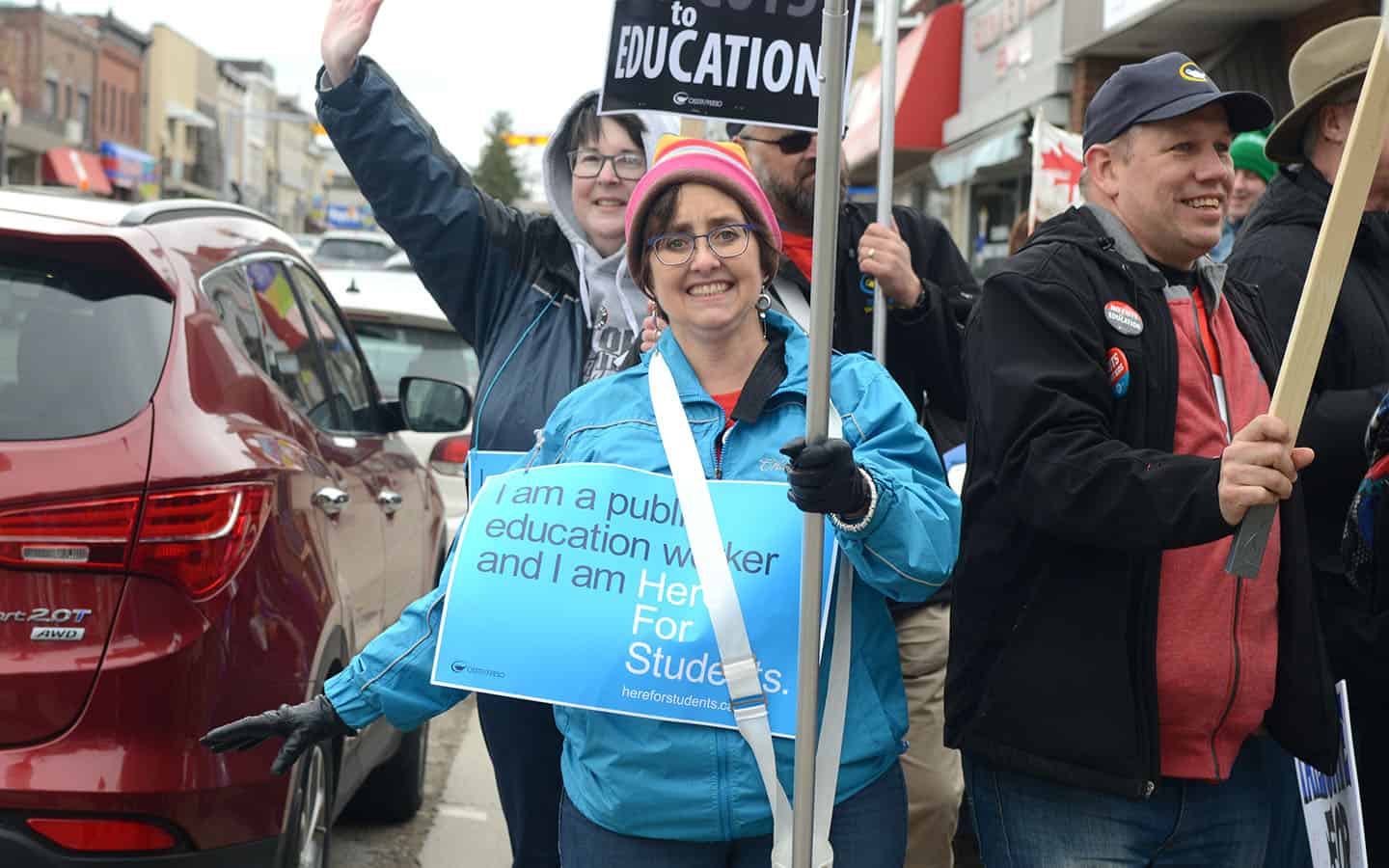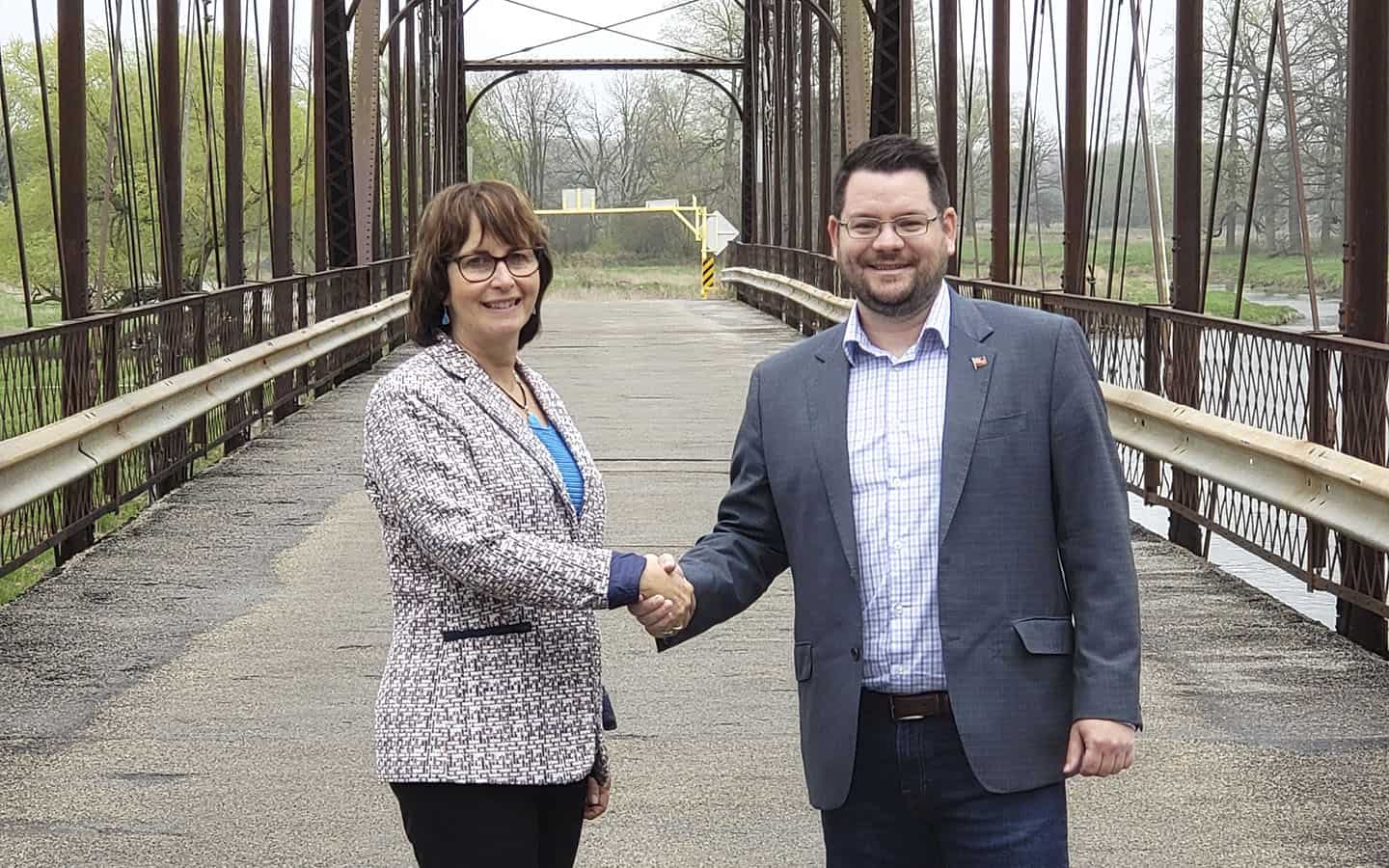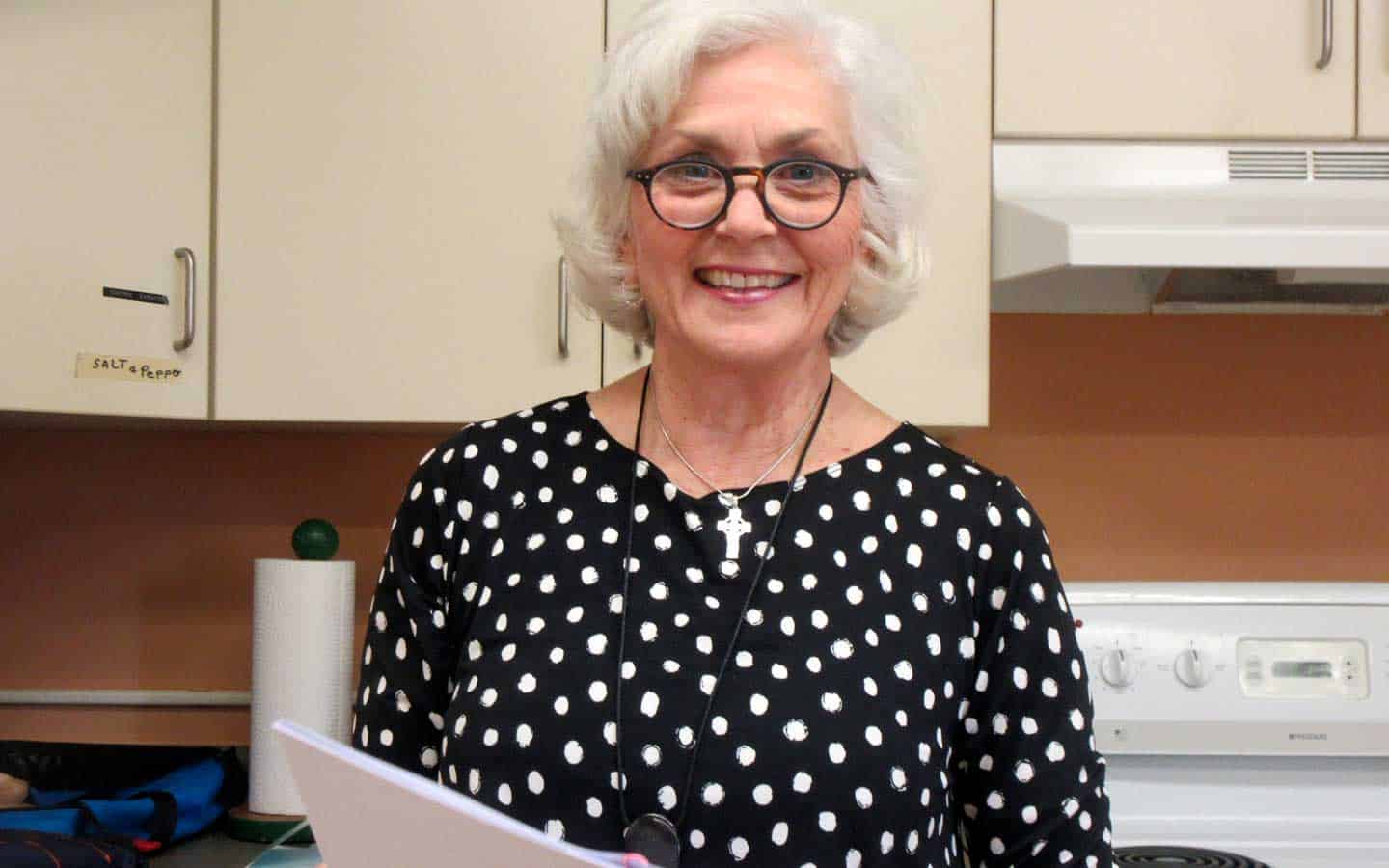Fast becoming the norm in Elmira, secondary school teachers and staff were the latest to group to hold demonstrations outside the office of conservative MPP Mike Harris last week. About 50 protesters, including teachers, support staff and retirees, attended to voice opposition to the provincial government’s proposed cuts to education, which union members estimate will see the loss of one-in-five secondary teaching positions in Ontario.
No teachers will involuntarily lose their jobs, the government has insisted, as a result of the new measures which will see average classroom sizes in secondary schools increased to 28 students from 22.
However, school boards in the province have already issued redundancy notifications to teachers, indicating they won’t have permanent positions in the fall, including in Peel Region, which released 369 such notices in April.
The Waterloo Region District School Board (WRDSB) has yet to follow suit, with a teachers’ union member and candidate vice-president for the local bargaining unit of the OSSTF saying the board is waiting until the end of the month for additional funding information.
“In WRDSB, they’ll be getting their pink slips at the end of the month,” said Nanci Henderson, head of special education learning services, who joined last Friday’s protests. “All over the province, it’s already happened in other areas. We’ve got a good relationship with our union and the board, so they’ve agreed to wait to see what comes out in May, what additional funding. We’re hoping there’s additional funding.”
WRDSB spokesperson Alana Russell said layoffs weren’t being planned until the province released more information on funding. The board had agreed with the union to extend timelines for potential surplus notices until after any updates.
Teachers warn that the larger classroom sizes mandated by the province will put pressure on school boards to cut lower-ratio classes. At risk, they say, are the optional courses offered by secondary schools, typically in arts and technology, and lower-ratio classrooms kept for students with special-needs and learning disabilities.
“So the government is saying, we’re just going to add six extra kids to every classroom,” said Henderson. “And that means that there’s fewer courses that are going to run in schools and principals are going to have to make decisions around which courses run. Perhaps some of the problem-solving will be missing optional courses like music, dance, drama, tech, some of the special needs lower ratio classes.”
Protesters also took aim at other measures being enacted by the government in education, including making e-learning mandatory for all grades in high school. Secondary school students will be required to take one online class each year in high school, which teachers lambasted as being universally inapplicable to all high school students in the province.
“As seasoned teachers here, I’ve got to tell you: you almost dance on your head to hold their attention in class,” said Richard Clausi, president of the Active Retired Members (ARM) of the OSSTF, an educator for some 40 years and former head of the EDSS math department.
“Just because it’s on a computer does not mean they’re going to read it and understand it,” he added “And then you lose all the extra help we gave to kids, that human touch.”

Noticeably absent from the protest outside MPP Harris’ office was the Kitchener-Conestoga MPP himself, who provided an emailed statement to the Observer.
“I celebrate our country’s commitment to freedom of expression, which was seen outside my office in Elmira by the Ontario Secondary School Teachers Federation (OSSTF) union on Friday,” said Harris. “Since then, my office has received multiple calls and emails from constituents supporting our education reforms, as restoring Ontario’s fiscal sanity was the mandate I received from voters.”
Protesters, however, voiced frustration at the inability to get a meeting with the MPP, who had been in town earlier in the day on Friday for the opening ceremonies of the 2019 Canadian Sledge Hockey Championships.
“I’ve been trying to get a hold of Mike Harris Junior since March 28,” said Henderson. “I can’t even have a conversation. I’m a constituent. I’m a Kitchener-Conestoga constituent. I work in the local high school. I’m the head of special education … and I want to talk to my elected official about how these things are going to affect my kids.”
The government has announced an attrition protection fund of $1.6 billion to protect against job losses, but have also said they will be changing funding to schools based on the revised classroom sizes.
“To be clear, total education funding is planned to increase by $1 billion over the next three years. This is despite our commitment to restore Ontario’s fiscal books to balance by 2022/23 and increase spending on priority areas including health care, child care, and programs for seniors,” said Harris.
Currently, funding for teachers’ and other staff salaries is doled out by the province on a per student basis. The amount given per student is calculated based on the assumption that every classroom has on average 22 students to a teacher. Moving to larger classrooms in the fall, however, will mean less money is required per-student to fund classrooms.
The direct result is that schools will see less funding given out by the province to pay for salaries, which the OSSTF says could mean losses to more than just teaching positions.
“The clear message is no one voted for this,” said John Gilbert, vice-president of the local Custodial and Maintenance Association (CAMA), which represents custodial workers and other such support staff under the OSSTF.
“Cost savings are important to everybody. Who doesn’t like saving money? But it needs to be done with consultation. It can’t be rushed, and that can’t be overstated. So everyone needs to come to the table and say what are your ideas? What do we have to get to, what targets must be met and how do we achieve them without humans losing jobs. Taxpayers losing jobs,” said Gilbert.
“It’s simply slash and burn. It’s not an education issue. It’s a special-ed issue, it’s library services, it’s municipal services, it’s all services. It’s everyone’s issue,” he added.









